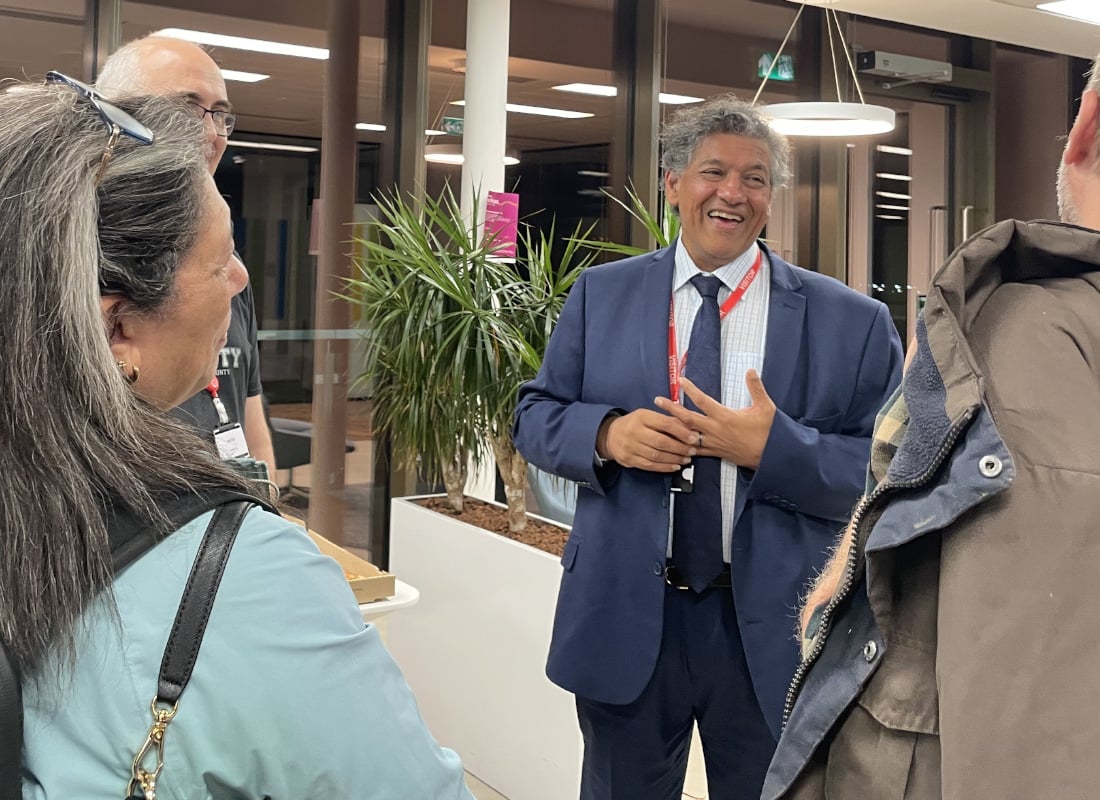What is your background, in terms of education and studies?
I left school when I was 16 and went to work for British Telecom, so I did an apprenticeship for a few years and subsequently, six years after I left school, I went back into university, studying more electrical engineering.
Computing, at that time, used to be just the cards you’d print out and you would hand them in as a programme and get the results back about three days later, to tell you you’d missed the full stop off and therefore the programme didn’t work. So it was early days of computers, but I was able to learn from that.
Subsequently I did a PhD which involved computers and robots, and some of the theory behind it, and I've been involved in universities ever since. As computers have developed and networking has become more powerful more recently I’ve been involved in integrating computers and networking with humans.
You’ve been awarded a wide variety of honorary degrees and medals. Which of those have meant the most to you and why?
I think two of the things I’ve achieved, been awarded, meant a lot to me. One was by The Royal Society of Medicine, the Ellison Cliff Medal, which was about the Bio Medical Research I’m doing, helping a lot of people with the technology, but also there is the Mountbatten Medal, which involves the IET and the BCS and the Fellowship of Royal Academy of Engineering, so all of those institutions go together to decide on who receives the Mount Batten Medal, so it was more of a general thing for the for my engineering computing contribution; anything like that is great fun.
What attracted you to science in the first place?
I think when I look back as a kid I enjoyed science fiction. I disagreed with most of the things they told me about science and I would argue with them and hence try to prove my version of it. Science can also be quite tough and it makes you think, you’ve got to work on it, and I like the challenge, to be perfectly honest. We can all go and stand on a stage and perform, but in science it’s a bit more difficult than that and I think rising to the challenge or proving to yourself that you can understand what might be a difficult concept is great.
Science is a moving thing, we might know what we that we think we know at the moment, but in a few years’ time well have a different view so I think it’s an exciting area to be in generally, but you can be part of changing the world in a way you can’t really anywhere else.
Did you have any role models as a kid?
In terms of a role model, when I was a kid I was more interested in the pioneers, if you like, different people like Captain Scott going to the Antarctic and killing himself and everything, but the possibility of doing that in science. I guess I was excited by some of the work a guy called Professor Michael Brady, at Oxford University, who was looking at helping people by using AI, to understand about different cancers and so on and, I guess, if I could follow in his shoes then I’ll be delighted.












